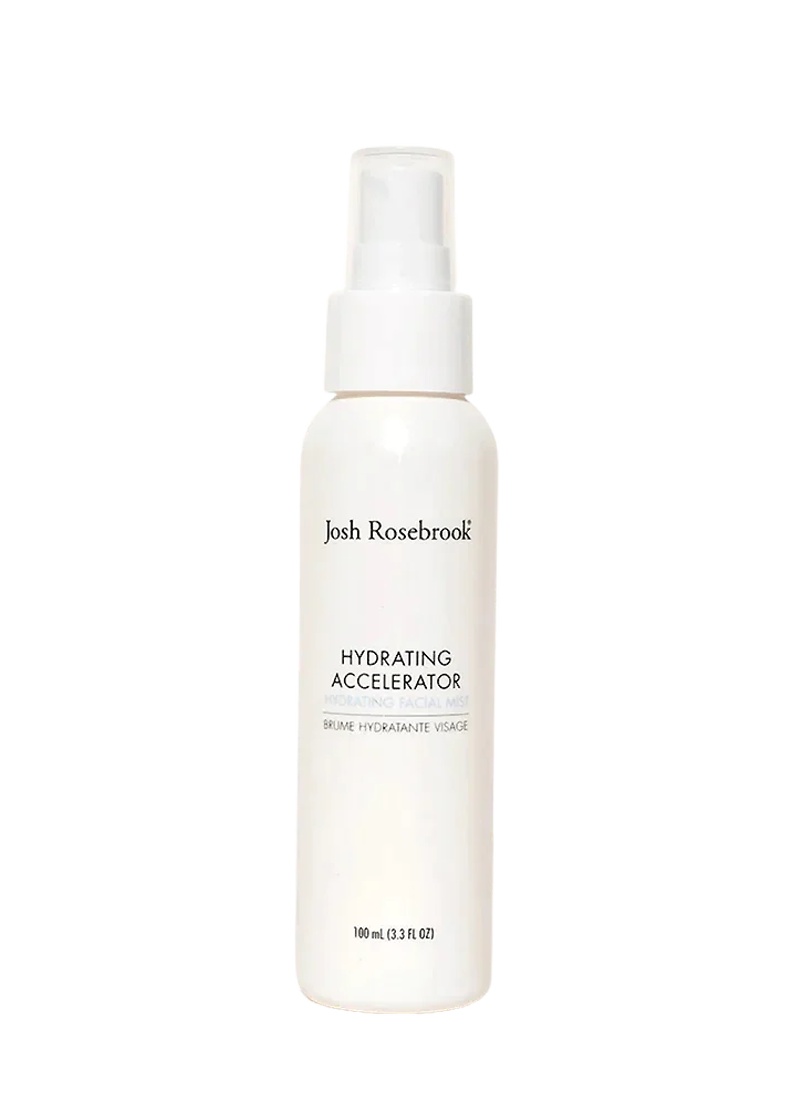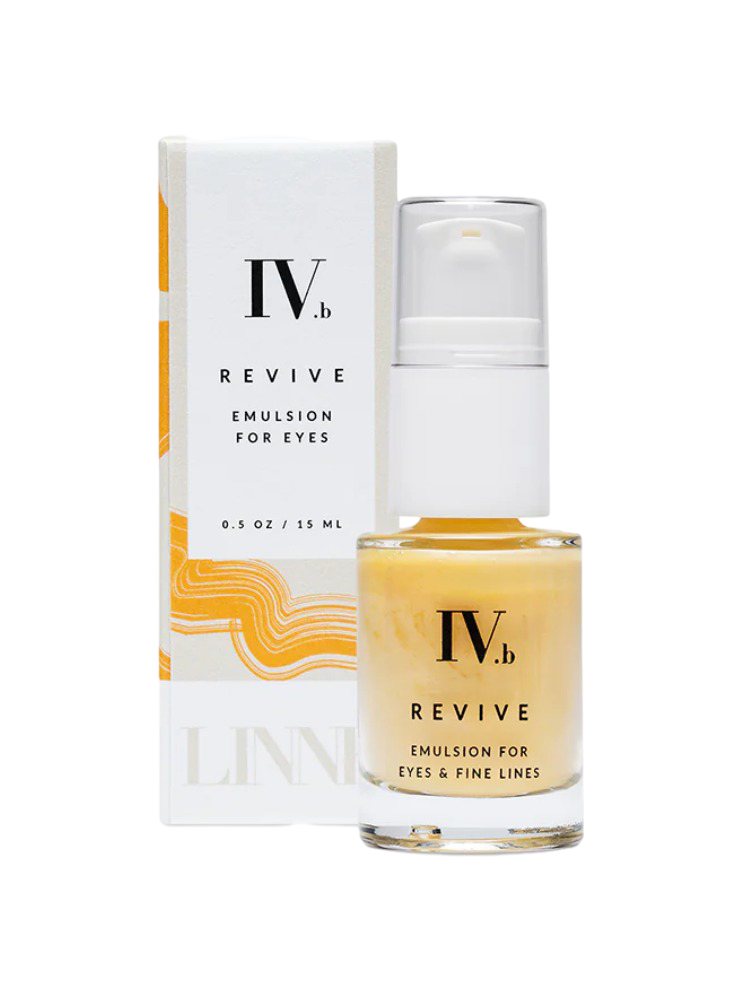Ever wondered why your skin reacts to the smallest of things? Well, this probably means you deal with sensitive skin like many of us. Sensitivity is subjective, and frequently self-diagnosed. You may notice redness, stinging or irritation after using certain products or upon encountering a particular ingredient, or perhaps your skin reacts readily to changes in climate. Because your skin is so reactive, it’s essential to establish a skincare ritual in order to maintain and care for the skin. This will help reduce any symptoms of irritation, and help keep your skin nourished and healthy.
Lifestyle changes can also cause the development of sensitive skin, even if your skin was previously dry, oily, or anywhere in between. Have you changed your diet? Have you changed your lifestyle? Have you had increased stress lately? For the majority of us the answer to all of the above — at least at some point over the past few pandemic-ridden years — is yes. Those changes can track in the skin. Read on to learn about some tips we’ve found works best for sensitive skin.

The Basics :
- Protect and restore your skin barrier by simplifying your skin care routine, using products with a suitable pH, using a moisturizer that contains ceramides or a humectant like hyaluronic acid.
- Fragrance is a major trigger for sensitive skin so make sure to choose products that are fragrance free.
- Alcohol-based astringents and foaming cleansers that have propylene glycol, a drying ingredient.
- Products with strong acids, sulfates and parabens that absorb more in sensitive skin and can worsen the inflammation.
- Higher concentrations of exfoliants such as AHAs, glycolic acid and retinol. These ingredients can make sensitive skin react.
- Also, stray away from benzoyl peroxide as it can cause sensitive skin to get red and inflame.
- Watch out for your detergents and household cleaners. Use products that are fragrance free and contain safer ingredients.
- Extra points: get yourself a water filter for your shower and make sure to not go for extra hot showers that can inflame the skin. Medium to lukewarm is best.
- Pop your face roller or gua sha in the fridge and use it to calm down redness. You can also put your hydrating face mask in the fridge and apply cold to soothe the skin.


Ingredients to include in your routine :
- NIACINAMIDE : Can improve skin hydration by preventing evaporation of moisture from the skin into the environment. It's also a natural anti-inflammatory ingredient, so it's great for calming irritated skin but also good for people with sensitive skin.
- CHAMOMILE EXTRACT : known for its purifying and calming properties – assuaging aggravation and the appearance of redness – making it suitable for sensitive skin types. It can reduce the appearance of redness and help to calm skin.
- PANTHENOL : Another calming and softening ingredient. It can aid in relieving itchiness and irritation.
- ALOE VERA : Can help soothe and lessen aggravated skin, making it a go-to for skin vulnerable to reactivity.
- ROSEHIP : With high levels of essential fatty acids, especially omega-3 (linolenic acid) and omega-6 (linoleic acid), rosehip seed oil can effectively soften skin and improve skin barrier function. It brightens and evens out the skin, regenerates and heals, helps with anti-aging, elasticity, and collagen production.
The Ritual :
It’s important to note that everyone’s skin is different, so take these guidelines with a grain of salt. With that said, these are our glow ritual essentials.
- CLEANSE : Sensitive skin varies tremendously across skin types. Our skin responds differently to different cleansing methods. While cleansing, you should slowly and gently clean the skin and wash with cool water afterwards. Use your fingers instead of brushes or washcloths as they can be harsh on the skin. Make sure to not overdo it with cleansing – dryness is itself an aggressor and increases sensitivity. Hydrating cleansers packed with barrier-fortifying fatty acids and vitamins are important. We love the Pai Middlemist Seven Camellia & Rose Gentle Cream Cleanser.
- TONE : Hydrating toners or essences such as the Josh Rosebrook Hydrating Accelerator can nourish the skin on a cellular level with ingredients such as aloe and herb anti-inflammatories to calm, relieve redness, and help reset the skin's natural healing ability while enhancing penetration of nutrients in serums, oils, balms, and creams applied after.

- SUPERCHARGE WITH SERUM : Replenishing serums filled with soothing botanicals are great to ensure sensitive skin is adequately nourished and soothed to avoid dryness, dehydration, and impairment of the skin’s barrier function. Our muse favorite is the Pai Back To Life Hydration Serum—a watery, gel-like consistency that sinks into skin like a dream.
- MOISTURIZE : A lightweight hydrating moisturizer, such as the Pai Chamomile & Rosehip Calming Day Cream, made specifically with the needs of sensitive skin in mind. Remember that a lot is not necessarily better. An even layer of moisturizer is ideal and comforting; too much cream can make the skin itchy.
- SPF : Never skip sunscreen! The best sunscreen for sensitive skin is tough on UV rays but gentle on your face. Choose mineral sunscreens that sit atop your skin as opposed to being absorbed into the skin (like chemical ones), where they then deflect UV rays rather than absorb them. Our go-to is the Naturopathica Calendula Essential Hydrating SPF 30, with no white cast or heavy feeling for clear + protected skin. Win, win!
Nourish your skin from within :
There are food choices that we can add to our diet that help reduce the risk of inflammation. In general, an overall healthy diet, including more natural and less processed foods, is ideal for your skin, such as the Mediterranean diet, which is high in fruits, vegetables, nuts, whole grains, fish and healthy oils. We put together a few food options that soothe + promote healthy and healing effects.

Tips :
- Asparagus : Contains saponins, anti-inflammatory compounds. This vegetable is also an amazing source of fiber, iron, and folate. It is also packed with vitamins A, C, E, and K. Low in calories, but high in antioxidants, which makes it a great addition to a sensitive skin-friendly diet.
- Broccoli : contains almost every ingredient sensitive skin craves. Broccoli is high in the antioxidant kaempferol, which fights inflammation and eases the immune system’s reaction to allergies. This vegetable is rich in vitamins A and C, helping protect your skin from sun damage and repair skin cells.
- Berries : Curb your craving for sweets by snacking on berries. They are low in sugar, but high in nutrients. Summer berries are full of antioxidants, helping prevent environmental damage while protecting skin cells. Rich in vitamins C and E, giving your skin the protection, nourishment, and radiance it needs. Not only are strawberries delicious for every summer event, but they also are higher in vitamin C than oranges.
- Avocado : Everyone’s favorite – it’s one of the best-all-around foods. It is packed with many nutrients, high in B vitamins, which aid in calming your skin. Additionally, avocados contain vitamins C and E, protecting your skin from environmental damage and aiding in graceful aging. Oleic acid and chlorophyll in avocados are key for sensitive skin, as they help reduce redness and fight inflammation.
- Peppers : Add some extra flavor to any meal of the day with peppers. Peppers are high in antioxidants and vitamins B and C, which we love for their amazing skin benefits. Peppers are also high in carotenoids, which protect your skin against damage from UV blue light, and they also support a healthy immune system. Finally, peppers contain sulfur, supporting collagen production.
- Leafy greens : Another anti-inflammatory favorite, leafy greens are rich in vitamin K, vitamins A, B, & C, as well as many antioxidants. Whether you add these to your smoothie, salad, or the side of your plate, leafy greens are one of the best foods for sensitive skin.
- Water : Drink at least eight glasses of pure, filtered water daily to help your body detoxify.
- Tea : (as opposed to coffee). Opt for white, green and oolong varieties.
More whispering, less yelling…
Our skin speaks to us. It sometimes may yell at us with a whole-body flare. It sometimes whispers with a tingling itch. To get our skin to stop yelling, is as simple as to stop ignoring it. We’re becoming increasingly aware of the deep connection between the mind and the body. In addition to emotional symptoms such as worry, anger, or fear, stress and anxiety can also present in a number of ways in our bodies. They can cause excessive itching, which may manifest in the form of rashes, hives, eczema, psoriasis, and acne. A nourishing daily ritual will keep the skin happy and quiet. When the skin is silent, think of it as it’s way of saying thank you—“thank you for caring for me, thank you for listening to me.”
* A Tip From
Our Skin Healer :
In many instances sensitive skin gets confused with reactive skin. They don’t necessarily go hand-to-hand, and tend to get grouped together and treated equally. Reactive skin can be caused by heat, herbs, or medicine. While sensitive skin can be a dryer skin where the sensitivity comes and goes. Being mindful of gentle products that work on the external while doing the work internally is key for each of these skin types.
Go-to : Start your mornings with Gua Sha - it makes all the difference!
Takeaway :
Sensitive skin is no walk in the park. Let’s just say your skin has high standards. Whether it’s redness from the sun, irritation from products or environmental allergens… You’ll experience unpleasant moments that go along with your skin’s sensitivity. The key is learning which ingredients do and don’t work for your skin’s unique needs. Remember the importance of reading labels carefully, patch testing diligently, and slowing down. Sit down, relax, and breathe. Do something that you love, it could be anything from dancing, watching a movie, taking a soothing bath… A healthy, calm mindset helps nurture your skin.


















